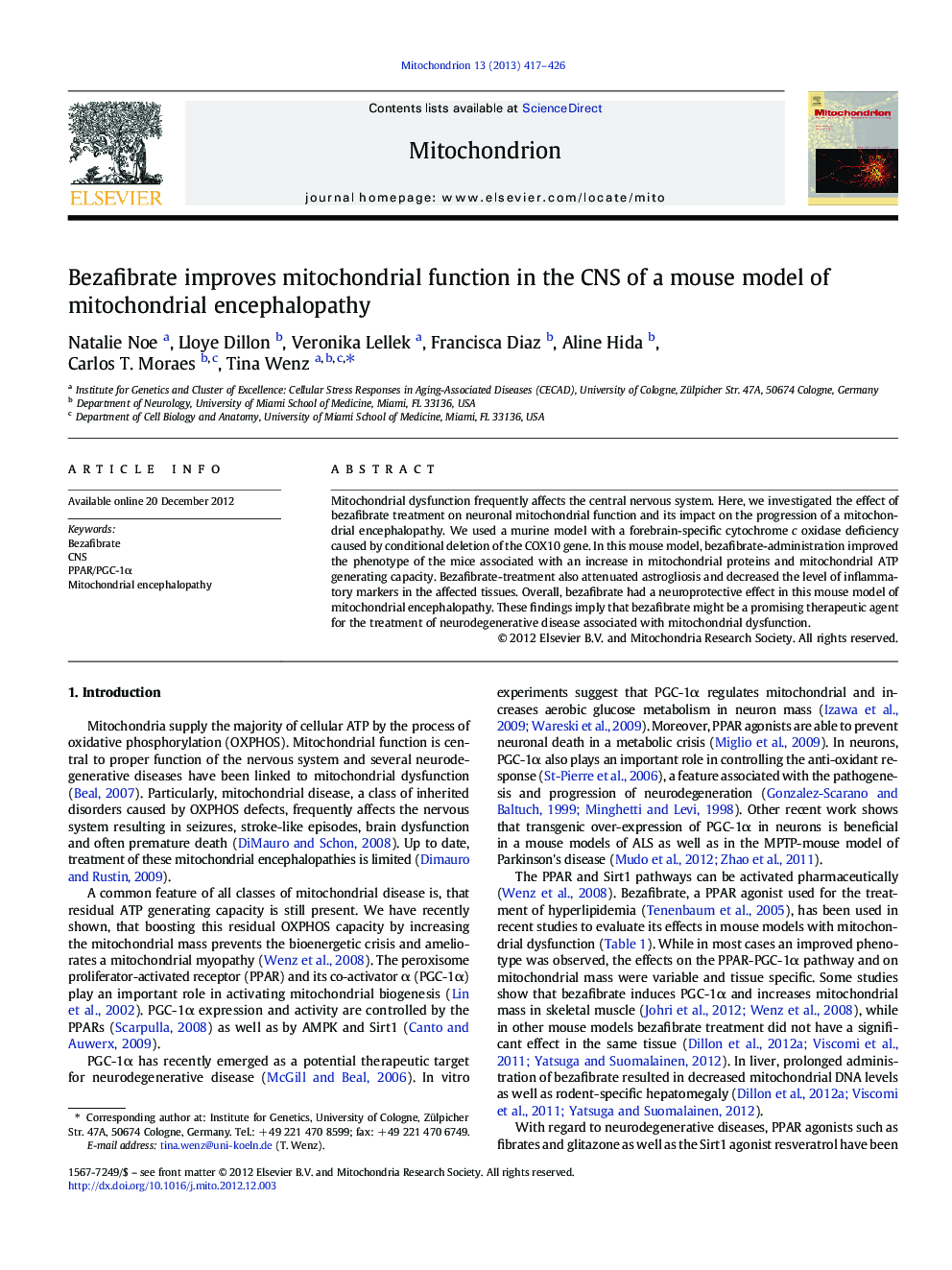| Article ID | Journal | Published Year | Pages | File Type |
|---|---|---|---|---|
| 2068747 | Mitochondrion | 2013 | 10 Pages |
Mitochondrial dysfunction frequently affects the central nervous system. Here, we investigated the effect of bezafibrate treatment on neuronal mitochondrial function and its impact on the progression of a mitochondrial encephalopathy. We used a murine model with a forebrain-specific cytochrome c oxidase deficiency caused by conditional deletion of the COX10 gene. In this mouse model, bezafibrate-administration improved the phenotype of the mice associated with an increase in mitochondrial proteins and mitochondrial ATP generating capacity. Bezafibrate-treatment also attenuated astrogliosis and decreased the level of inflammatory markers in the affected tissues. Overall, bezafibrate had a neuroprotective effect in this mouse model of mitochondrial encephalopathy. These findings imply that bezafibrate might be a promising therapeutic agent for the treatment of neurodegenerative disease associated with mitochondrial dysfunction.
► Bezafibrate induces mitochondrial biogenesis in neuronal cells. ► Bezafibrate has a therapeutic benefit in a mouse model of mitochondrial encephalopathy. ► Bezafibrate attenuate astrogliosis.
